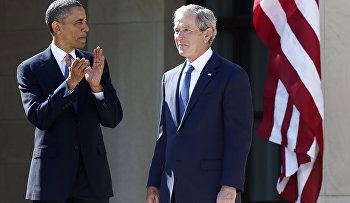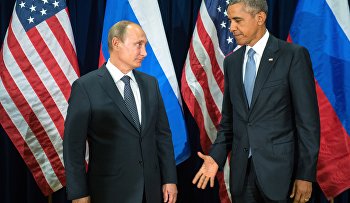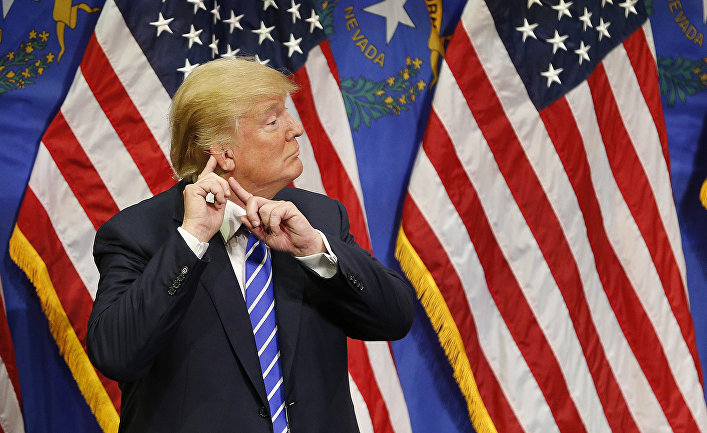This is one instance when many agree with Donald Trump. Last Sunday on NBC Chuck Todd put this question to the eccentric tycoon. “What's your view, Mr Trump? Do you think the Middle East might have been a better place today, if Saddam Hussein and Muammar Gaddafi had remained in power, and Bashar al-Assad were in a more commanding position?” Trump replied with certainty — “Why, of course! No doubt about it.” His Republican Party colleagues shouted him down. Marco Rubio claimed that Trump has issues with reality, while New Jersey Governor Chris Christie said of Trump that “regrettably, he is extremely naïve.” But despite all this, Trump is correct.
Let's start with Saddam Hussein. True, he certainly was a monster. Even the United Nations stated that “Saddam Hussein was responsible for widespread repression, and the wholesale use of terror.” He deployed force for political ends, killed thousands of Kurds with poisonous gas in 1988, and in the Shiite uprising that followed the First Gulf War, his soldiers are estimated to have killed over 100,000 people.
A good many people, believed that no-one on earth could be worse than Saddam Hussein. But we were wrong. According to research carried out in 2013, the American invasion of Iraq — and the chaos which followed in its wake — claimed the lives of half a million Iraqis. Stats compiled by the United Nations Council for Refugees, say that by 2014, over two million Iraqis had become refugees in consequence of that invasion. All of this, of course, took place before the so-called ISIL had ever come into existence, a terror group that would never have even existed, had the US not destroyed Iraq first.

Muammar Gaddafi was also a vicious dictator, who tortured and mutilated his political opponents. But just as it happened in Iraq, the meltdown which followed his ouster by NATO was even worse. The Danish Institute Against Torture writes that in the three-and-a-half years which have passed since the outbreak of Libyan Civil War in 2011, the same year in which Gaddafi himself was killed, one Libyan family in five has lost a family member. The Brookings Institute in Doha says that 400,000 Libyans had been made refugees by spring 2015. In summer this year, UN Special Envoy Bernardino León warned that Libya is tottering on the brink of financial collapse.
And so to Syria, where Bashar al-Assad has appropriated all power in the country, the media is hemmed in by the severest censorship, and the Kurdish minority population has been viciously repressed. However, what happened next beggared all belief. Since civil war erupted in 2011 more than 200,000 people have been killed, half the Syrian population have fled their homes, and the forces of ISIL have seized control of roughly half of the country. We are forced to admit that the lives of the Iraqi, Libyan and Syrian populations were markedly better when they were ruled by brutal tyrants.

It may well be true that Trump's opinions aren't entirely realistic. The civil wars which broke out in Syria and Libya certainly began as popular uprisings. Perhaps neither Gaddafi nor Assad could have quashed those uprisings, even if they'd had the USA's assistance. The US could have not invaded Iraq. Yet it's impossible to say whether the 'Arab Spring' wouldn't also have prompted an Iraqi uprising that would have ended in national meltdown.
Donald Trump's views illustrate a rising inclination towards anti-interventionism — that's entirely understandable in the light of the events of the past 15 years. In the closing years of the twentieth century the US was perceived as the nation which kept order in the Middle East and SE Asia, from a safe distance. There were few actual American troops in those regions. The US instead preferred a strategy of coddling local existing regimes, which sold the US cheap oil, while battening the hatches against rival political influences from elsewhere.
Donald Trump talks sense: MiddleEast would be safer if the US kept away, and Gaddafi, Saddam were in power http://t.co/fbdzW5taUd
— Abhijit Majumder (@abhijitmajumder) October 13, 2015
The terror attacks of September 11, 2001 prompted an unprecedented expansion of US military presence in the region. President Bush invaded Iraq and Afghanistan simultaneously. President Obama then made substantial troop withdrawals from the same countries — yet the wars went on, waged by drones, the bombing of Libya, stepped-up military action in Afghanistan, and most recently by military operations against ISIL. Obama not only maintained the air strikes, but redoubled their intensity. Most of Trump's opponents within the Republican Party believe that Obama ought to ramp-up the air strikes still further, and even put American boots on the ground in these countries.
The central plank of Trump's persuasive rhetoric is that fifteen years of American aggression — under the ideological tricolor of fighting terrorism, preventing nuclear proliferation and supporting human rights — have produced a Middle East scenario calamitously worse than it was before American intervention.

It's certainly true that not all of the Middle East's problems can be laid at the door of American invasions, nor perhaps even the majority of those problems. But considering everything which has come to pass, US presidential candidates should surely now have clearer understanding of the unintentional blowback war can deliver. They need to take on board that the US has neither the power nor the ability to institute regime change in feudal societies with no traditions of democracy, far less bring about any alternative or better regime. And they ought to realize that this convivial chit-chat about America's leadership is in reality a charming window-display for bombing and incinerating people whose names we will never know, and whose faces will go conveniently unseen. The US has brought already-traumatized societies to even more desperate levels of bitterness and hatred.
Regrettably, most Republican candidates haven't the first clue about any of this. They remain certain that the imposition of US government policies at home can often make things worse, yet when it comes to foreign policy, their preference for non-intervention somehow evaporates.
Trump isn't a fellow traveller. What he said last Sunday about the USA's role in Middle East contained a notion which isn't in the luggage of the other candidates – humility. And you can tell things must be very bad indeed in the Republican Party, when humility is being talked-up by a man like Donald Trump.






